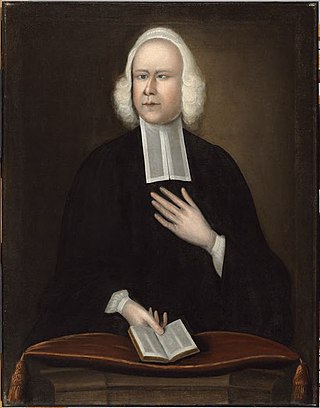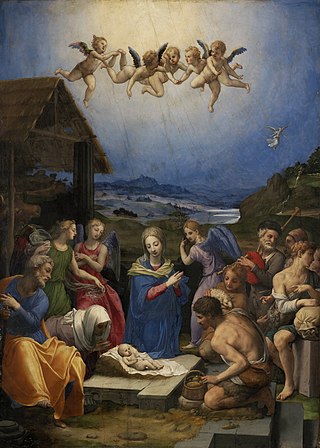Other years |
| Countries of the United Kingdom |
| Scotland |
| Sport |
| 1739 English cricket season |
Events from the year 1739 in Great Britain .
Other years |
| Countries of the United Kingdom |
| Scotland |
| Sport |
| 1739 English cricket season |
Events from the year 1739 in Great Britain .

George FridericHandel was a German-British Baroque composer well known for his operas, oratorios, anthems, concerti grossi, and organ concertos. Handel received his training in Halle and worked as a composer in Hamburg and Italy before settling in London in 1712, where he spent the bulk of his career and became a naturalised British subject in 1727. He was strongly influenced both by the middle-German polyphonic choral tradition and by composers of the Italian Baroque. In turn, Handel's music forms one of the peaks of the "high baroque" style, bringing Italian opera to its highest development, creating the genres of English oratorio and organ concerto, and introducing a new style into English church music. He is consistently recognized as one of the greatest composers of his age.

George Whitefield, also known as George Whitfield, was an English Anglican minister and preacher who was one of the founders of Methodism and the evangelical movement. Born in Gloucester, he matriculated at Pembroke College, Oxford in 1732. There, he joined the "Holy Club" and was introduced to John and Charles Wesley, with whom he would work closely in his later ministry. Unlike the Wesleys, he embraced Calvinism.

John Wesley was an English cleric, theologian, and evangelist who was a leader of a revival movement within the Church of England known as Methodism. The societies he founded became the dominant form of the independent Methodist movement that continues to this day.

William Williams, Pantycelyn, also known as William Williams, Williams Pantycelyn, and Pantycelyn, was generally seen as Wales's premier hymnist. He is also rated among the great literary figures of Wales, as a writer of poetry and prose. In religion he was among the leaders of the 18th-century Welsh Methodist revival, along with the evangelists Howell Harris and Daniel Rowland.

Charles Wesley was an English Anglican cleric and a principal leader of the Methodist movement. Wesley was a prolific hymnwriter who wrote over 6,500 hymns during his lifetime. His works include "And Can It Be", "O for a Thousand Tongues to Sing", "Christ the Lord Is Risen Today", "Love Divine, All Loves Excelling", the carol "Hark! The Herald Angels Sing", and "Lo! He Comes With Clouds Descending".
This article contains information about the literary events and publications of 1739.

"Hark! The Herald Angels Sing" is an English Christmas carol that first appeared in 1739 in the collection Hymns and Sacred Poems. The carol, based on Luke 2:14, tells of an angelic chorus singing praises to God. As it is known in the modern era, it features lyrical contributions from Charles Wesley and George Whitefield, two of the founding ministers of Methodism, with music adapted from "Vaterland, in deinen Gauen" of Felix Mendelssohn's cantata Festgesang.

"Christ the Lord Is Risen Today" is a Christian hymn associated with Easter. Most of the stanzas were written by Charles Wesley, and the hymn appeared under the title "Hymn for Easter Day" in Hymns and Sacred Poems by Charles and John Wesley in 1739. The hymn eventually became well known for the "Alleluia" sung as a melisma after each line, which was added by an unknown author, probably to fit the commonly used hymn tune, "Easter Hymn". It remains a traditional processional hymn on Easter Sunday.
Events from the year 1738 in Great Britain.
Events from the year 1735 in Great Britain.
Events from the year 1724 in Great Britain.
Events from the year 1700 in England.

Selina Hastings, Countess of Huntingdon was an English Methodist leader who played a prominent part in the religious revival of the 18th century and the Methodist movement in England and Wales. She founded an evangelical branch in England and Sierra Leone, known as the Countess of Huntingdon's Connexion.
Events from the year 1732 in Great Britain.
Events from the year 1717 in Great Britain.
Events from the year 1712 in Great Britain.
Events from the year 1748 in Great Britain.
Events from the year 1722 in Great Britain.
Events from the year 1742 in Great Britain.

The Battle of Porto Bello, or the Battle of Portobello, was a 1739 battle between a British naval force aiming to capture the settlement of Portobelo in Panama, and its Spanish defenders. It took place during the War of the Austrian Succession, in the early stages of the war sometimes known as the War of Jenkins' Ear. It resulted in a popularly acclaimed British victory.